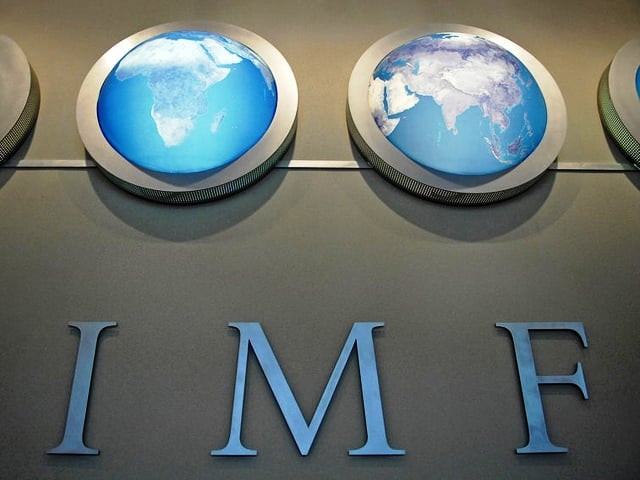Pakistan, IMF to meet in Dubai on May 11
Officials will finalise broader framework for upcoming budget.

A Pakistani delegation is dashing to Dubai on May 11 to finalise a broader framework for the next budget after the International Monetary Fund (IMF) refused to send its staff due to security fears after the killing of Osama bin Laden.
Finance ministry sources said Islamabad and IMF have agreed on a fresh date for negotiations that has averted the possibility of delay in finalisation of budget targets for the next financial year. The talks would revolve around a list of conditions that IMF wants Islamabad to implement in the 2011-12 budget.
Earlier, the IMF team was scheduled to visit Islamabad on coming Sunday but cancelled talks due to security concerns.
After last summer’s floods, the United Nations had eased travel advisory a notch, paving the way for crucial visits of international lending agencies. However, with the killing of Osama bin Laden on Monday this week the practice of holding talks at expensive cities likes Istanbul, Washington and Dubai has again started.
Though the finance minister had claimed that the purpose of the IMF visit was the fifth review of economy - necessary for the restoration of the $11.3 billion programme, IMF has yet to give its version. Pakistan and IMF relations are at a critical juncture after the former failed to deliver on the agreed agenda like reformed general sales tax and budget deficit.
Finance ministry sources said there would be three major points for negotiations. The first and foremost issue would be firming up this year’s actual tax collection, reviewing new tax proposal and agreeing to next year’s tax target. This would determine the budget deficit target for next year. The government has proposed a Rs1,952 billion tax target for next year that would be scrutinised by IMF.
The government has convened a meeting of the Revenue Advisory Council (RAC) on Friday to scrutinise the tax proposals before tabling in front of IMF. One of the main tax proposals is whether to levy gross asset tax at a rate of 1 to 1.25 per cent. Sources said the IMF would still push Islamabad to impose the reformed general sales tax.
An FBR official said on Thursday that the government may increase tax rates but might not impose any new tax for fear of losing its vote bank.
IMF would also seek update on energy reforms that has crippled the economy. During a recent visit, the government had assured IMF that it would restrict power subsidies to Rs139 billion by increasing tariffs. However, according to the finance ministry the subsidies may touch Rs189 billion by end-June.
The third major issue of discussions would be determining structural benchmarks, one of them is the State Bank Amendment Act which is proposed to give operational independence to the central bank. However, the government has introduced many changes in the agreed draft that may become a bone of contention.
Published in The Express Tribune, May 6th, 2011.



















COMMENTS
Comments are moderated and generally will be posted if they are on-topic and not abusive.
For more information, please see our Comments FAQ